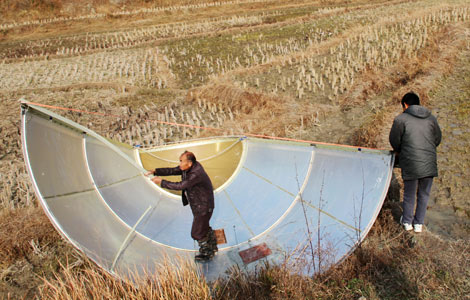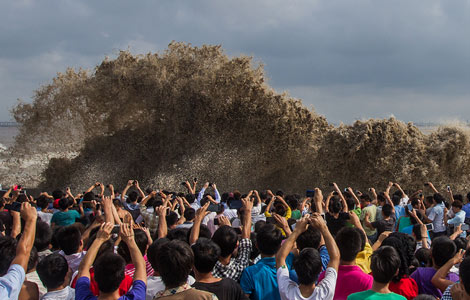US response to China's ADIZ biased
Updated: 2013-12-23 07:27
By Ted Galen Carpenter (China Daily)
|
||||||||
The creation of China's ADIZ admittedly puts the US in an awkward position. Japan and the ROK are the US' long-standing allies, and they fully expect it to support their stance on the issue. The Obama administration is reluctant to disappoint them, even though it wants to maintain friendly relations with China.
The minimum that US officials should have done is to urge Washington's allies not to take confrontational steps. Instead, Washington joined them to exacerbate an already tense situation.
US policy regarding China's ADIZ is more than a little hypocritical. Washington insists that it remains neutral on the substance of the dispute over the Diaoyu Islands, but a key objection that Tokyo has expressed about the new ADIZ is that it intrudes into Japanese airspace over the islands. Washington agrees, and has previously stated that the US-Japan Mutual Security Treaty covers those islands. That is hardly maintaining a neutral position on the underlying territorial dispute.
The US bias goes further. Japan and the ROK have maintained air identification zones over parts of the East China Sea for many years, without US officials voicing any objection. Indeed, both The Wall Street Journal and Taiwan-based China Post have reported that Japanese authorities have repeatedly warned aircraft, including commercial flights, to comply with Tokyo's identification requirements or risk interception by Japanese fighter planes. On several occasions, such intercepts have actually taken place, creating considerable apprehension among airline pilots. There is no evidence that US officials have ever objected to those practices, despite the obvious danger such intercepts create. They certainly have not expressed public criticism. Yet US leaders denounce a similar Chinese zone as intolerable.
Indeed, Washington's double standard has become even clearer since the ROK government extended its ADIZ on Dec 8 to overlap further with the Chinese zone. To date, the Obama administration has remained silent about that action, apparently not considering it a step that escalates tensions.
US leaders need to adopt a more even-handed policy. Since the various air identification zones include airspace over disputed territories, the potential for nasty incidents is especially high. Instead of being a partisan supporter of Japan and the ROK, the US should endeavor to be an honest broker facilitating a diplomatic compromise.
Decisions need to be made on how to handle flights from all sources that transit the overlapping zones and contested airspace. All parties should endorse procedures that minimize the danger of a tragic incident, and China's desire for a wider application of identification standards is reasonable. Working out the details poses a diplomatic challenge that requires the relevant governments to rein-in their emotions and do what is best for air safety.
And Washington has the opportunity to take the lead in this process and should do so instead of engaging in biased condemnations of one party.
The author, a senior fellow at the Cato Institute, has to his credit nine books and more than 500 articles and policy studies on international affairs.
(China Daily 12/23/2013 page11)
Most Viewed
Editor's Picks

|

|

|

|

|

|
Today's Top News
Committee of 100 seeks to tackle 'sensitive' images about China
IPR courts 'would be helpful'
GM corn rejection no to hurt market
Liaoning's combat capability tested
Sotheby's denies $8m work is fake
Castro urges US to respect differences with Cuba
Student wounded in school shooting dies
US aircraft hit by gunfire in S. Sudan
US Weekly

|

|















